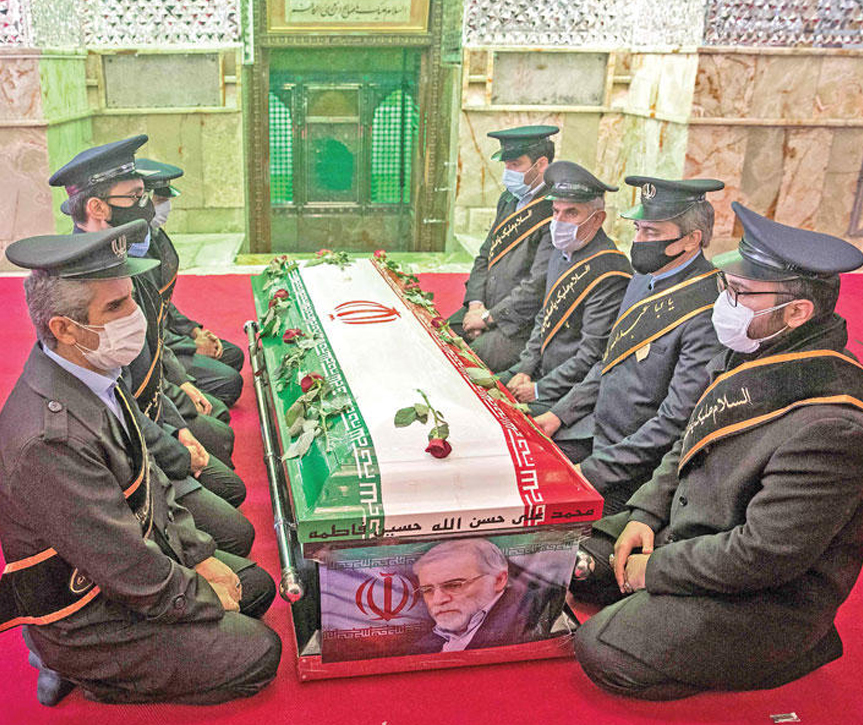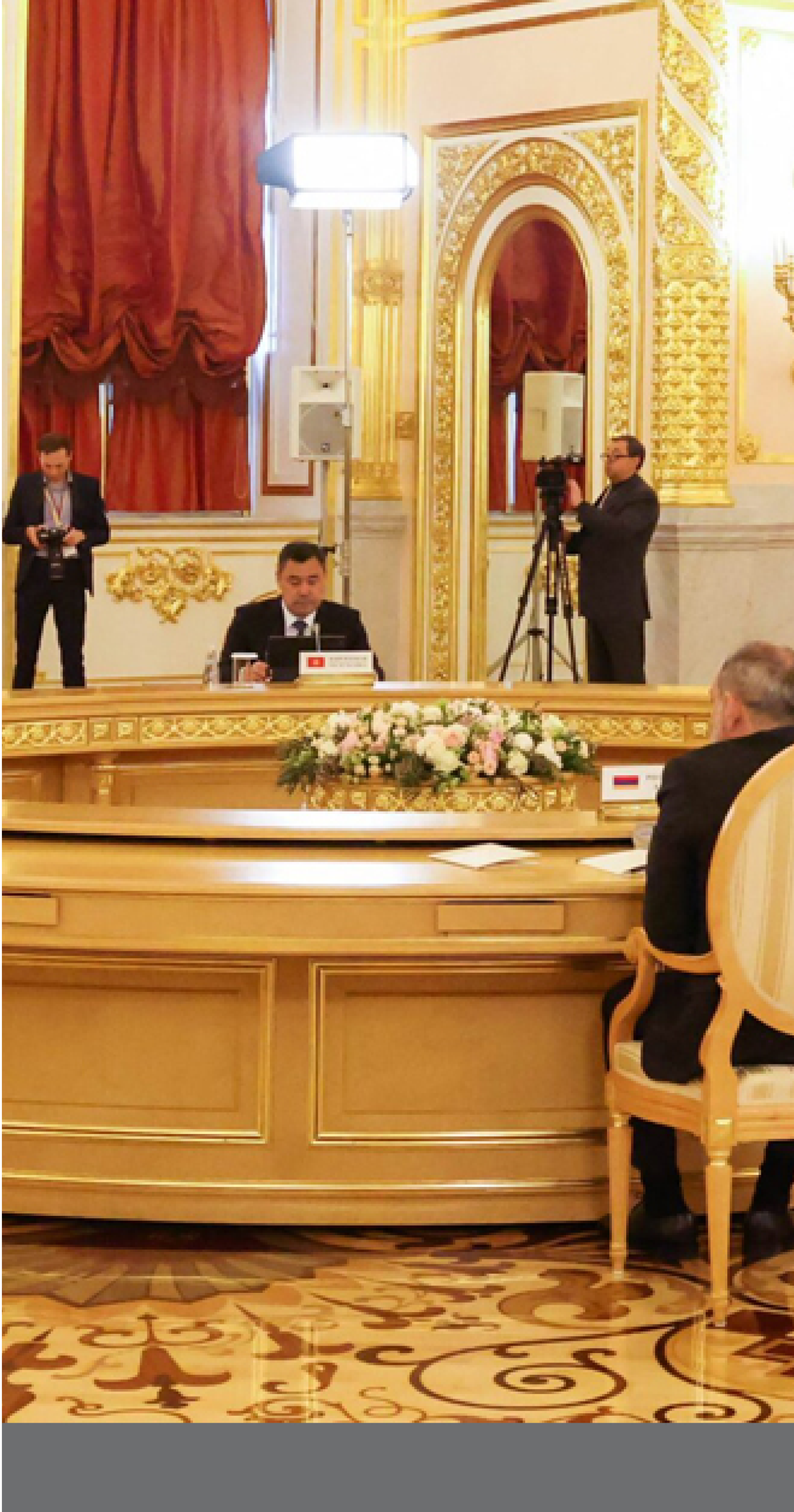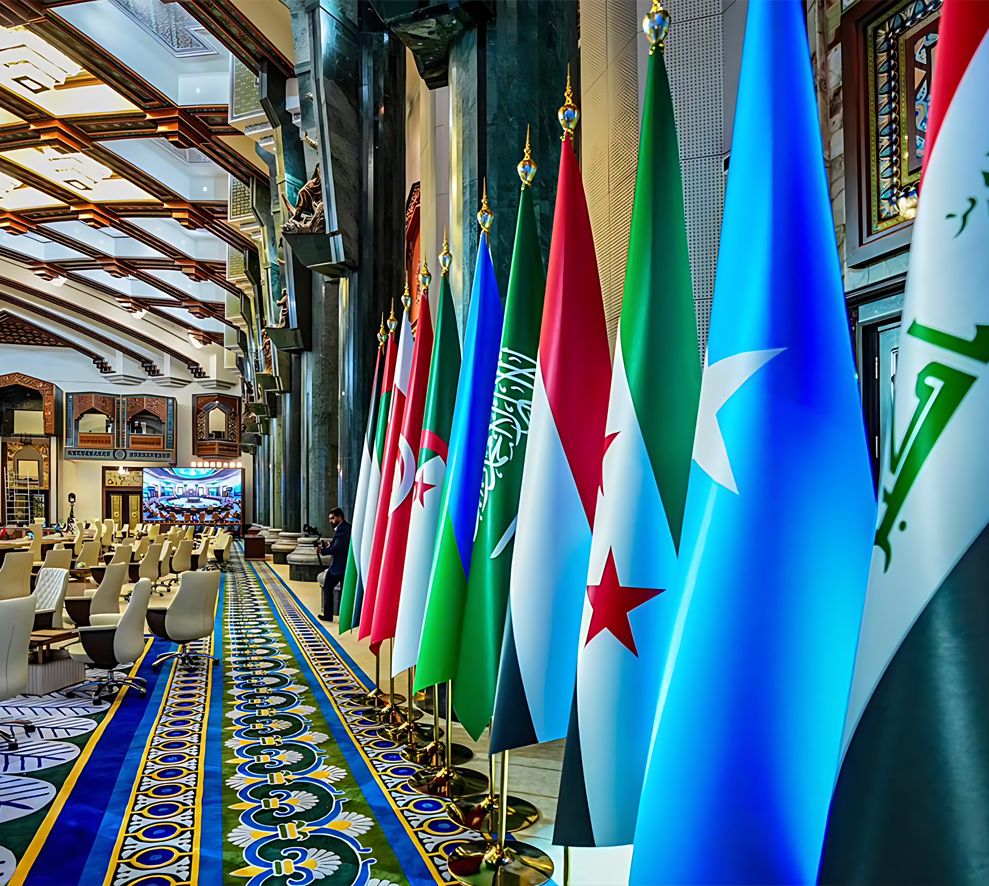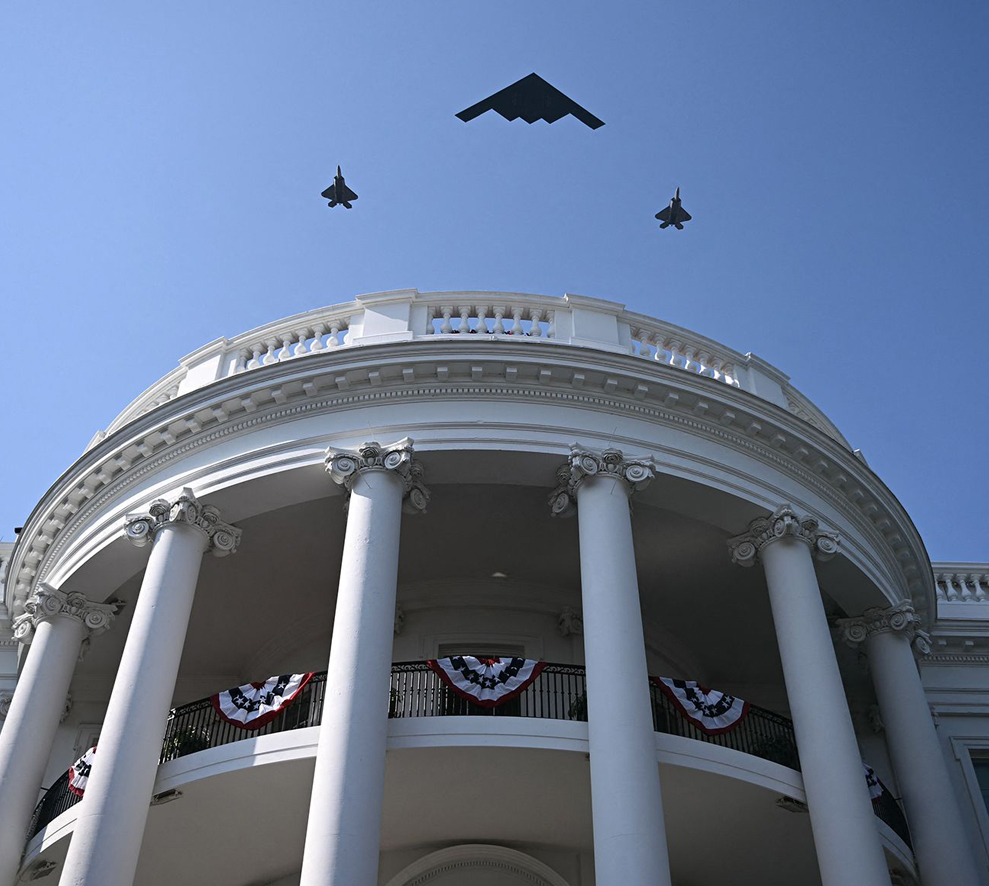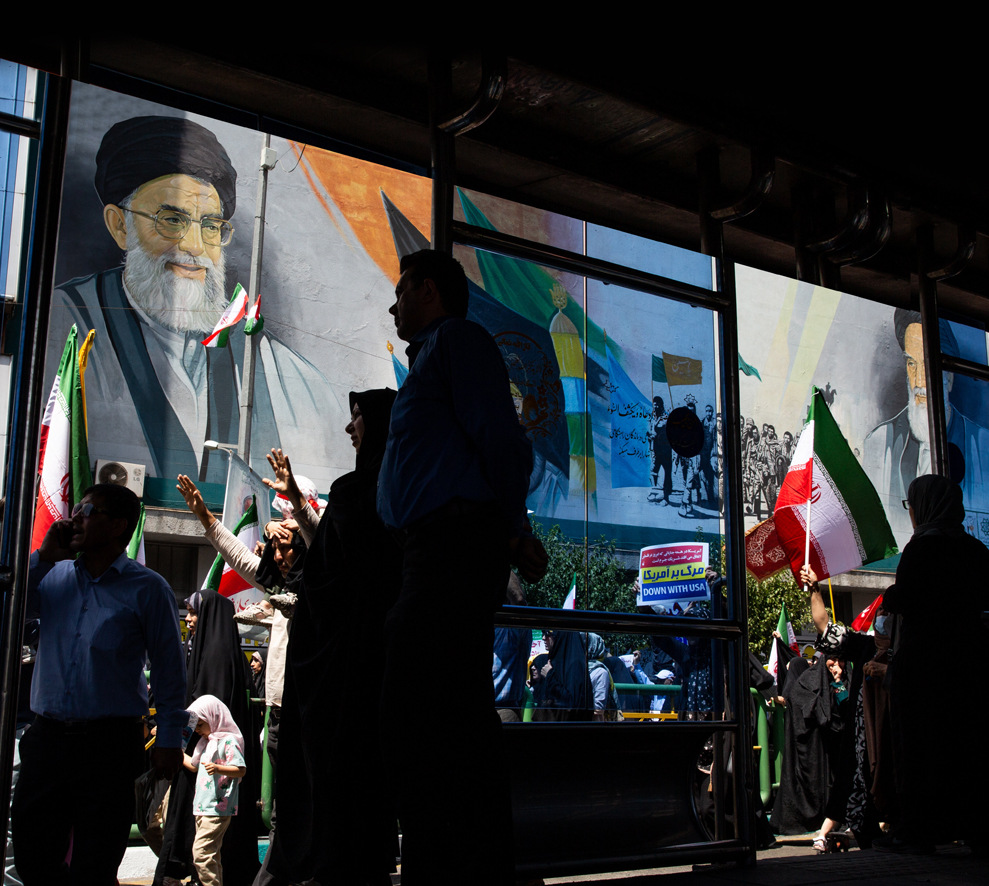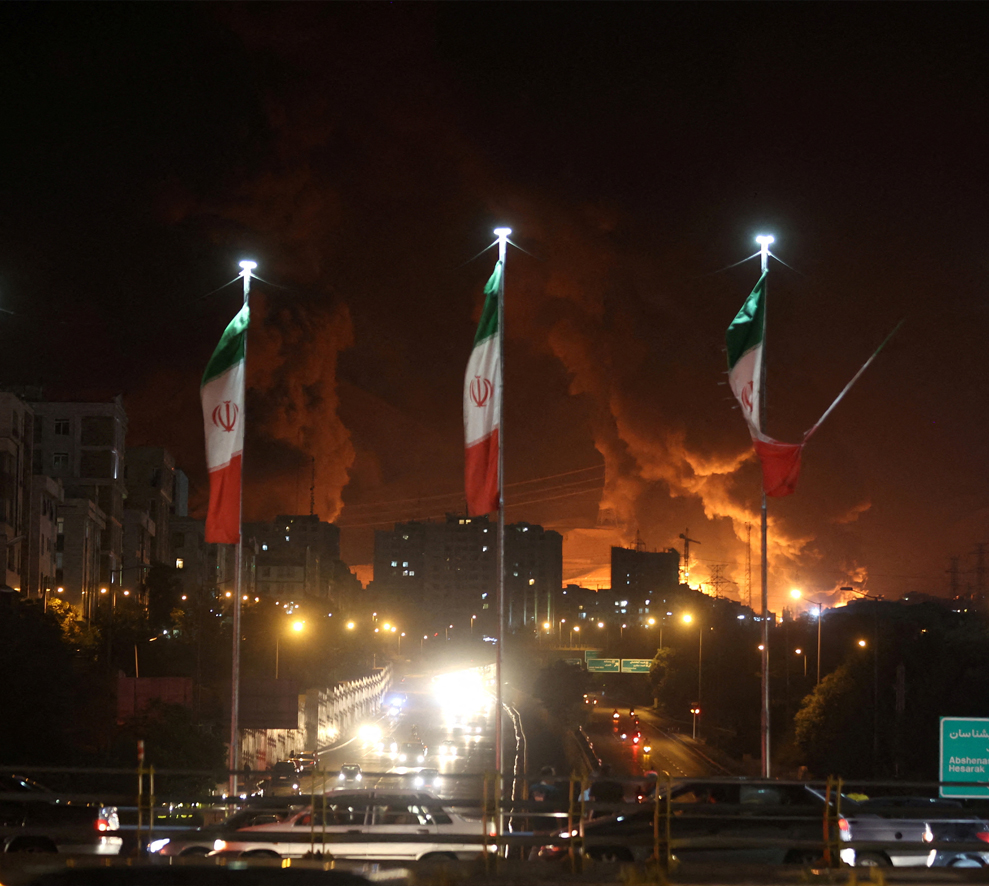In parallel with the statements of condemnation made by many countries regarding the assassination of the nuclear file senior official in the Iranian ministry of defense, Mohsen Fakhrizadeh, Iran was asked for restraint and avoiding military escalation in the region. This is especially after many Iranian officials have pointed the finger of blame at Israel's Mossad with the absence of any response by Tel Aviv to these allegations, in addition to the Iranian authorities threatening at its different political and militant levels to response for the assassination that occurred in a time when the region was witnessing a high level of tension that coincides with the transition of power in the United States.
Zadeh, who was assassinated on 27 November 2020, in Damavand in the Iranian capital, Tehran, is the top nuclear scientist in Iran. In 2007, the international security council inscribed him on the sanctions list, and two years ago while speaking about the development of the Iran’s nuclear militant program, the Israeli Prime minister, Benjamin Netanyahu, mentioned his name describing him as the spearhead of this program.
The assassination has not hit Iran’s nuclear capabilities in different domains; for it goes without saying, these capabilities do not depend on one person; rather on institutions, cadres, expertise that were developed and accumulated over time. However, this does not mean Iran will remain silent, in which officials are trying to put an end to targeting its national security, taking into account that this assassination is not the first; five Iranian scientists were assassinated between (2010-1012) according to Reuters. In addition to the series of sabotage actions that took place in July 2020 targeting petroleum refining plants, power plants and nuclear facilities, on top of them the well-known Natanz facility, and yet who is behind them is still unknown.
In Tehran, politicians agree indirectly that there is an undeclared war against their country, that was intensified since the US withdrew from the nuclear agreement in May 2018. It manifests itself in the sanctions of the “maximum pressure” campaign, in addition to targeting the Iranian military presence in Syria, trapping them politically in Lebanon and Iraq. Thus, some consider that Zadeh’s assassination will push Iran to adopt a limited military response as it did when commander of the Quds Force, Qasem Soleimani, was assassinated at the beginning of the year 2020. It should, however, be pointed out that no one has claimed responsibility for Zadeh’s assassination, furthermore, the Iranian’s security forces have not provided a clear definite and concrete evidence that Tel Aviv is behind this assassination.
The results of American elections and the conflict with Iran
In an interview with the “New York Times” at the beginning of December 2020, the elected American president, Joseph Biden, stated that there is no solution for the tension in the Middle East without reactivating the Nuclear Agreement. According to Biden, this step could return stability to the region, prevent an arm race among rival powers. This is why it is suggested that the new clear agreement extends to include other countries in the region like Saudi Arabia and Egypt.
Moreover, the German foreign minister, Heiko Maas, made a statement indicating that the nuclear agreement in its current form is no longer enough; it has to include the missile program for the Iranian military. Both statements indicate that it is nearly impossible to keep the Nuclear Agreement the way it was signed in 2015 despite the return of Democrats to the White House. It turned out that Europeans have no problem to exert pressure on Iran, however, the problem with Trump’s administration was the mechanism of this pressure, in addition to deputes in other files and issues. All of the above prevented reaching a united stand concerning the Middle East issue, which is extremely important. After the preliminary and semi-official release of the American election results, the administration of the outgoing President, Donald Trump, started to have an attitude that, as some describe it, aims at complicating the mission of the new administration on all levels. In this regard, we can see exerting more pressure on Iran; Trump’s administration in mid of last November 2020 imposed a series of financial and economic sanctions on a number of Iranian figures and institutions.
The tendency to create obstacles for Biden’s administration led many news outlets based on certain leaks from here and there to claim that Trump’s administration will launch a military action against Iran. These speculations became even more real after sending B-25 strategic bombers and the United States aircraft carrier "USS Nimitz” that were coincided with the visit of the US secretary of state, Mike Pompeo, to Tel Aviv, Abu Dhabi and Manama in mid of November 2020.
There has been a tendency in some countries in the region to block the American foreign policy Biden’s administration will adopt towards Iran in the coming period to improve negotiation conditions; which means pushing Iran to make concessions in any agreement or future settlement. Possibly, Biden’s administration would take advantage of Tel Aviv and its role in the region to threaten the Iranian interests, in precisely calculated periods, to push it to concede to reach a different formula of the nuclear agreement.
Contradiction in Tehran
As any other external issue, the fundamentalist and reformist currents split up in Iran regarding the timing of response to Zadeh assassination, its magnitude and implications. The first current that dominates the majority in the parliament is calling for a shocking and significant response very soon; however, the seconds prefers patience and behaving “rationally” in order not to be dragged into a comprehensive regional war. This was reflected in the speech by the Iranian President, Hasaan Rouhani, in which he implied the state has to be, what might be called, strategically patient in parallel with the continuous threat to response.
The late response does not indicate that Iran will totally demise this step. It may response on the last day for Trump in the White House, so he does not have the chance to do any reaction of a certain kind. In other words, the Iranian decision maker bets on Biden’s administration that is looking forward to restoring the status quo. According to the Iranian foreign affairs minister,
Mohammad Javad Zarif, Biden’s administration is merely required to lift the economic sanctions, so that Tehran can return to its commitments completely under the nuclear agreement. Zarif considers the United States’ return to the agreement another step that requires negotiation.
The “not very” intense reaction for the assassination of Zadeh was manifested in the Supreme Leader’s, Ali Khamenei, speech in which we can never compare the outrage with the outrage in the one following Soleimani’s assassination. The Supreme Leader did not mention a word about the ones responsible for the assassination while speaking about the necessity of “responding”. Moreover, the Iranian parliament adopted the law “strategic measures to remove the American sanctions” which includes raising uranium enrichment to 20% and reinstating Arak heavy water reactor as a step to return to pre-nuclear agreement quo. Nevertheless, to come into force, this law must have the consent of the Guardian Council, which is unlikely in light of the governmental criticism for the law as it does not serve the requirements of the period.
As for the reply type, if occurred, it would probably be targeting Israeli figures without the government in Tehran claiming responsibility officially, in order not to give the other party a justification for acceleration that Iranian authorities do not want, at least until Biden takes office in Washington.
Under “retaliation” that some Iranian leaders call “smart response”, all options are possible: Assassination, cyber-attack, or chaos at the Syrian or Lebanese borders. In case of not using any, the Iranian leadership will lose people’s entitlement, and as a result, fundamentalists’ chances will increase in controlling the polity in the Iranian presidential elections to be held in mid next year 2021. This means that the militant escalation that could lead to a comprehensive or limited regional war would be a matter of time, not more.
Keep in touch
In-depth analyses delivered weekly.

Related Analyses:







